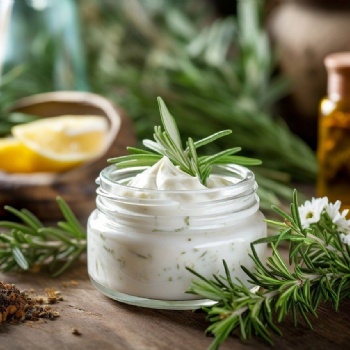Teens and Skincare: Understanding the Risks of Anti-Aging Products

As parents, we want the best for our teenagers, especially when it comes to their health and well-being. It is important to educate ourselves about the skincare products our teens are using, particularly when it comes to anti-aging products.
Understanding Teen Skin:
Teenagers have unique skin that is different from both children and adults. Their skin is more prone to acne, sensitivity, and other skin issues due to hormonal changes during puberty. Teen skin produces more oil, making it susceptible to clogged pores and breakouts. It is important to recognize these factors when considering skincare products for our teens.
Risks of Anti-Aging Products for Teens:
Harsh Ingredients: Anti-aging products often contain potent ingredients such as retinol, alpha hydroxy acids (AHAs), and peptides. While these ingredients can be beneficial for mature skin, they can be too strong for teenage skin, leading to irritation, redness, and dryness.
Disruption of Natural Balance: Teen skin is still developing, and using anti-aging products can disrupt the natural balance of the skin. Excessive use of these products can strip the skin of its natural oils and moisture, leading to increased oil production and potential long-term damage.
Unnecessary Ingredients: Anti-aging products are formulated to target specific signs of aging, such as fine lines and wrinkles. These concerns are not relevant to teenage skin, as their focus should be on maintaining a healthy skincare routine and preventing acne and blemishes.
Suitable Skincare for Teenagers:
Cleansing: Encourage your teen to cleanse their face twice a day using a gentle cleanser specifically formulated for their skin type. This will help remove excess oil, dirt, and impurities without stripping the skin.
Moisturizing: Moisturizing is essential for all skin types, including teenage skin. Look for lightweight, oil-free moisturizers that provide hydration without clogging pores.
Sun Protection: Teach your teen the importance of sun protection. A broad-spectrum sunscreen with an SPF of 30 or higher should be applied daily, even on cloudy days, to protect their skin from harmful UV rays.
Spot Treatment: Instead of using anti-aging products, teenagers should focus on spot treatments for acne and blemishes. Look for products containing benzoyl peroxide or salicylic acid, which can help reduce inflammation and prevent breakouts.
While the idea of preventing signs of aging may be appealing, it is crucial for parents to understand the risks and unsuitability of anti-aging products for teenage skin. By educating ourselves and our teens about proper skincare routines and suitable products, we can help them achieve healthy, radiant skin without compromising their skin's natural balance. Encourage open communication with your teen and consult a dermatologist if you have any concerns about their skincare routine. Remember, prevention and maintenance are key when it comes to teenage skincare.
Alison Robinson is subject lead for Art and Head of House at Radnor House.